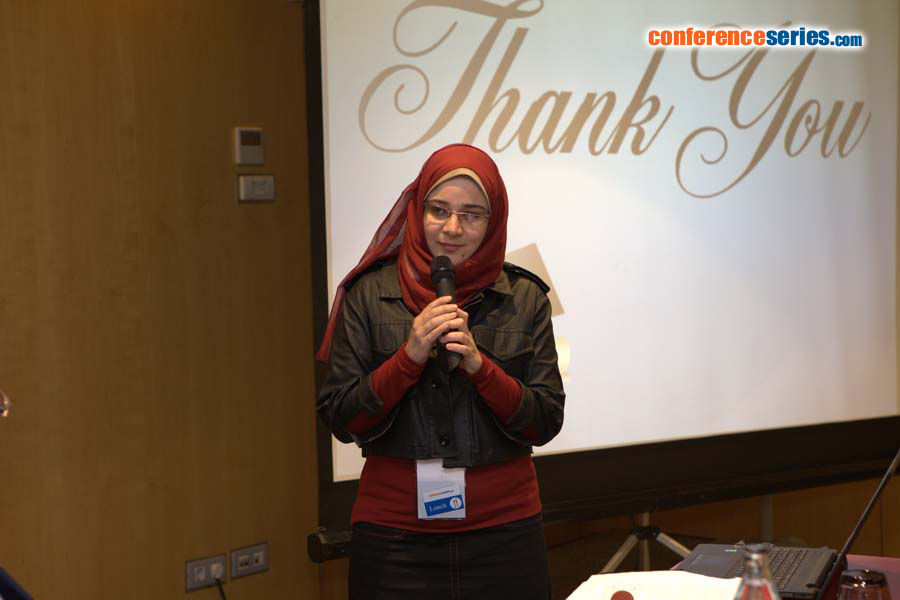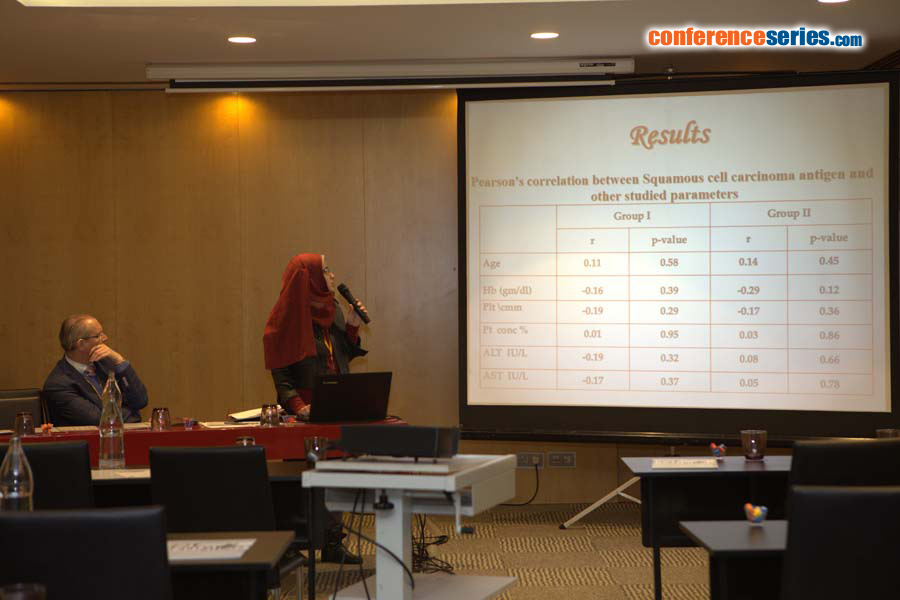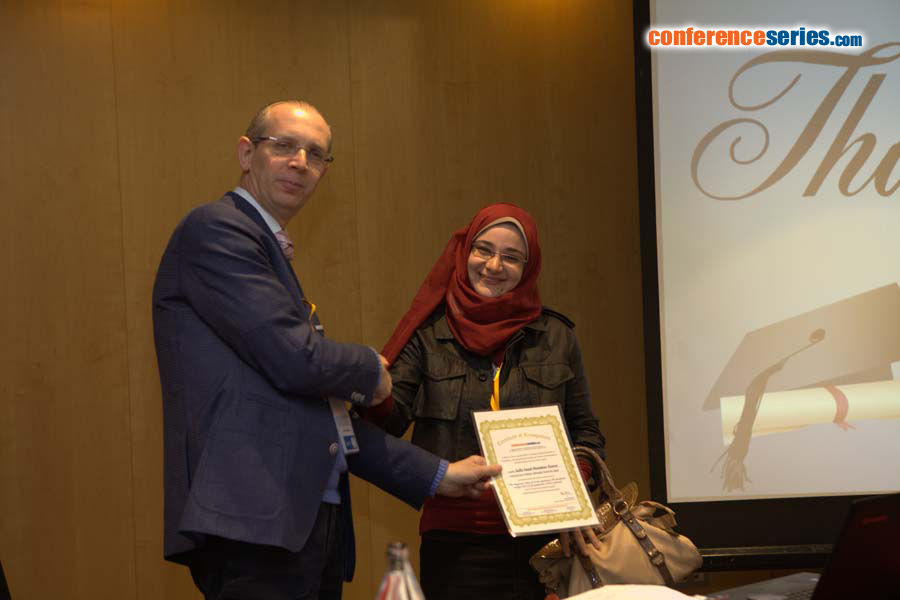
Sally Saad Mandour Esawy
National Liver Institute, Menoufia University, Egypt
Title: The diagnostic value of serum squamous cell carcinoma antigen (SCCA) for prediction of HCC patients
Biography
Biography: Sally Saad Mandour Esawy
Abstract
Background: Hepatocellular carcinoma (HCC) is the most common type of primary liver cancer and shows a growing incidence worldwide related to the increased prevalence of the various risk factors of chronic liver diseases, such as hepatitis infection with hepatitis C and B viruses. Each year hepatocellular carcinoma is diagnosed in more than half a million people worldwide. Therefore, prompt diagnosis of HCC is imperative.
Aim: Aim of this study is to determine the efficacy of serum squamous cell carcinoma antigen (SCCA) in comparison to alpha-fetoprotein in the detection of hepatocellular carcinoma.
Methods: This study was carried out in Clinical Pathology department, Faculty of Medicine at National Liver Institute, Menoufia University all over the period from June 2012 to November 2013. The study included 30 patients with liver cirrhosis and 30 patients with HCC in addition to 17 unrelated healthy adult subjects with matched age and gender were included as controls. Serum alpha fetoprotein (AFP) and serum squamous cell carcinoma antigen level were estimated by enzyme linked immunosorbent assay.
Results: Although SCCA has more sensitivity than AFP in detection of HCC, AFP remains a relatively good diagnostic marker for HCC with high specificity.
Conclusion: AFP is a relatively good diagnostic test for cirrhosis with high specificity. Moreover combination of the two markers may improve the sensitivity making them combined a perfect screening tests for prediction of HCC
Speaker Presentations
Speaker PPTs Click Here





